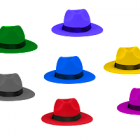Saturday night (well, OK, in the wee hours of Sunday morning) across most of the US and Canada, we “sprung forward” our clocks, resulting in lost sleep, and at least a day of being totally thrown off because the day seemed… well…. just weird. Since most of us don’t work on a Sunday, the day of adjustment helped us acclimate, and then – life goes on with a longer day of sunshine through next Fall.
But what if you had to lose that sleep every few days, then re-acclimate every few days? What if you spent your life in a constant battle with the time of day, and the loss of sleep? What if you had to put in 28 hour days of work and then, somehow, try to catch up on your sleep, returning just 8 hours later to do it all again?
And then what if your job was brand new and involved saving lives, because you were a first-year resident doctor (no, they don’t call them interns anymore)… and your patients, who were hospitalized so YOU could take care of THEM, were constantly at the mercy of your lack of sleep?
The question of still-student doctors (residents) and the numbers of hours they work without a break while lives depend on them, has been questioned for decades beginning in 1984 when a teenager died at the hands of an exhausted resident.
In 2011, the accreditors for medical schools (The ACGME, the Accreditation Council for Graduate Medical Education) reduced the number of hours first-year medical residents could work after the Institute of Medicine* sounded the alarm bells about safety concerns for patients who were treated by exhausted, sleep-deprived residents. “Reduced” is still relative… the hours were reduced to 16.
Could you work at a heightened state of alertness for 16 straight hours? What if lives depended on YOU to be awake and alert for so long? Now what if you had to do that for 80 hour weeks?
And then… what if you learned that same accreditation body, the ACGME, has just changed its rules again so that now you will be working in 28 hour shifts instead?
Yes, that’s right. The new ACGME rule has now almost doubled those hours! Beginning July 1, 2017, student doctors (residents) will now be working up to 28 hour shifts in the hospital. While the ACGME said the rule has been changed because “studies” have suggested it, they cite no studies on which they have based the change. The general consensus is that the change has come about because older doctors feel that “I had to go through it, now you have to do it, too” – almost as a hazing ritual. Not mentioned, but really quite obvious, is that hospitals love the idea (more below.)
(Cynicism alert!) Hazing young doctors – a great reason to threaten a patient’s life, right? Translated it means, “When I was a student doctor, they put my patients at risk by not letting me sleep, so now we’re going to jeopardize the lives of YOUR patients, too!” (Begging the question: exactly who is being hazed?)
So why is this important to independent patient advocates? The ACGME has nothing to do with us… or does it?
It most certainly does if your client must be hospitalized. It affects almost every aspect of your client’s hospitalization, from admission (no matter whether they are admitted or not), to treatment, to assistance… from infection control (how many exhausted residents remember to wash their hands?) to surgery (when you’re sleep-deprived, how well would you remember what to do next, or how steadily would you hold a knife or a cauterizing tool?) to remembering what the options are when your patient is in pain, and how that is affected by other drugs they take, etc etc.
Exacerbating the problem is that over the last decade, hospital patients have become sicker or more badly injured than they ever were, on the whole. Less complex patients are no longer staying in hospitals; they are having day surgeries, or are being seen in free standing clinics. Hospitalized patients, therefore, require far more complex knowledge, thinking and action…. from exhausted students who are just cutting their teeth? Seriously?
Now, lets take a left turn to another line of thinking all together….
Hospitals LOVE student doctors! They pay them a small fraction of what they pay more experienced doctors, and malpractice insurance for student doctors is covered not by the hospital, but by the medical school. That means that the more hours those student doctors work, the more money the hospital saves (and makes)! If you’re a hospital administrator, what’s not to love about that? (I wonder how much influence and pressure was applied on the ACGME by those hospitals, which often own, or are part of the same system as the medical school?)
And so – returning again to independent patient advocates – THIS is where we come in.
Understanding that much of the treatment received by our clients will be recommended and applied by possibly exhausted students, it is crucial that we be vigilant, and that if we aren’t present by our clients’ bedsides, then we teach caregivers and family members to question every recommendation made. Just as we teach them to ask good questions of the surgeon or doctor, or ask anyone who checks our client-patients to wash his/her hands, why not also ask how much sleep a doctor has had?
Which doctors need to be asked? Age is no longer an indicator of “young doctor” because medical schools are full of older students. In many states, by law, hospital medical personnel must wear name tags that clearly show the doctor’s name and experience level, so you might get all the information you need about their experience status from that. But if not, a friendly question will do the trick. “Have you worked in this hospital a long time?” Or “Have you been practicing medicine a long time?” Never be confrontational. Always be professional and collaborative, but assertive enough to get the information you need.
If you find a doctor is potentially sleep deprived, and a recommendation seems unusual, or you (or your client) don’t understand it and can’t get a clear enough explanation, then you have an obvious responsibility and opportunity, advocacy cape and all, to swoop in to fix the situation – until it does make sense, or it is changed.

Studies have shown the deleterious health effects of daylight savings time which happens only once a year. We can only imagine the negative impact this new ruling by the ACGME will have on hospital patients.
And we can only imagine how many lives will be saved or improved when on-the-ball, well-rested advocates run interference on sleep-deprived medical personnel.
*The Institute of Medicine is best known for its seminal report in 1999 “To Err is Human” which triggered the earliest discussions of patient safety problems leading to 44,000 to 98,000 deaths annually in the US. Those statistics have ratcheted up to 440,000 deaths per year due to medical mistakes. We have to wonder how many of them are due to exhausted student doctors?
LEARN ABOUT APHA MEMBERSHIP | FIND MORE REASONS PATIENTS NEED ADVOCATES






Some additional information about this topic: this great assessment of the pros and cons of 28 hour shifts from WBUR:
Harvard Doctor: Return To 28-Hour Shifts For Medical Interns Is Good ? Except When It’s Not
http://www.wbur.org/commonhealth/2017/03/13/opinion-interns-28-hour-shifts